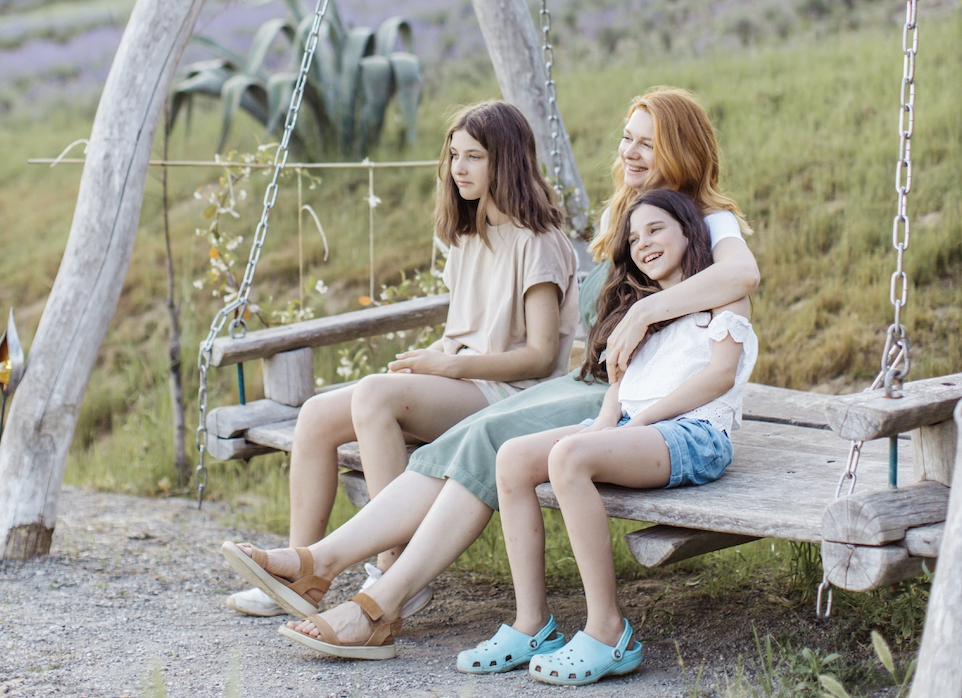At the beginning of my presentation, I had painted a picture of the broader macro environment in which we find ourselves today. An environment characterized by increasing polarization among the population and a high degree of interdependence between events (a small, local fire can turn into a global fire in no time, cf. Covid-19 or the war in Ukraine). A world with increasing anxiety and with falling consumer confidence that has reached an all-time low. I wrote here earlier that this crisis (or accumulation of crises) will not be a temporary, transient phenomenon, but that we are at a tipping point in history. The impact of this crisis will be felt for many years to come, if only because of the astronomical mountain of debt that has been built up in the meantime to cope with the socio-economic consequences of both Covid-19 and the current energy crisis.
But how do you tell all that to your children, the woman / independent entrepreneur / mother asked me last week after my lecture. She was a young forty-year old from the East of France, married and visibly proud of her 2 growing teenage daughters of 13 and 15 years. She had voted for Emmanuel Macron for the 2nd time this year, she confided to me hesitantly ('because he is the only reasonable alternative'). "I'm certainly not a 'gillet jaune,'" she quickly added affirmatively, "but with what's happening to us now, I'm starting to show some sympathy."
I told her my own story of the previous major crisis of the 70s, with consequences even into the 80s. I was 14 in 1973 (about the age of her daughters today) when the Gulf War turned into a petroleum crisis with far-reaching economic and social consequences throughout the Western world: business closures, high unemployment, skyrocketing mountains of debt and widespread dystopianism. In my experience, it was a strange mix of youthful carefreeness (from ABBA's 'Dancing Queen' to the warm summer of 1976, 'Lying in the arms of Mary'), of revolting against a system ('no future' of punk), of graduating from university (an academic degree did not guarantee an employment afterwards), to borrow for the owner-occupied home after a first work experience at an interest rate of 12 percent in the early 90s. "So, you survived all that, didn't you?" the woman replied, slightly relieved.
I also told her that it is mainly a matter of willpower to keep thinking ahead, and that young people are more resilient than we sometimes suspect, as concerned parents. I added that there are events and evolutions that you as an individual, even as a large country, have no control over. But that there are also many things that you do have control over and that you best focus on them. It avoids frustration and disillusionment. Focus on your studies, your friendships, your first work experiences later on. And still try to enjoy and celebrate. I also told her that you should never give up, no matter how difficult that is sometimes when the wind is against you, and sometimes you risk losing courage.
I told her my own story of the previous major crisis of the 70s, with consequences even into the 80s. I was 14 in 1973 (about the age of her daughters today) when the Gulf War turned into a petroleum crisis with far-reaching economic and social consequences throughout the Western world: business closures, high unemployment, skyrocketing mountains of debt and widespread dystopianism. In my experience, it was a strange mix of youthful carefreeness (from ABBA's 'Dancing Queen' to the warm summer of 1976, 'Lying in the arms of Mary'), of revolting against a system ('no future' of punk), of graduating from university (an academic degree did not guarantee an employment afterwards), to borrow for the owner-occupied home after a first work experience at an interest rate of 12 percent in the early 90s. "So, you survived all that, didn't you?" the woman replied, slightly relieved.
I also told her that it is mainly a matter of willpower to keep thinking ahead, and that young people are more resilient than we sometimes suspect, as concerned parents. I added that there are events and evolutions that you as an individual, even as a large country, have no control over. But that there are also many things that you do have control over and that you best focus on them. It avoids frustration and disillusionment. Focus on your studies, your friendships, your first work experiences later on. And still try to enjoy and celebrate. I also told her that you should never give up, no matter how difficult that is sometimes when the wind is against you, and sometimes you risk losing courage.
That it is a matter of realism, that you should not bury your head in the sand, or flee from the evil world around you, but also a matter of hoping for a better world after this crisis. That the same glass can sometimes be half empty, but also often half full. That through a crisis there are also people who grow closer to each other, or discover what really counts. I told her about the possibilism, by Caroline Pauwels: that you have to believe in the good in people that every crisis also offers possibilities and unexpected opportunities.
She had listened for a long time, and had often nodded in agreement. She now urgently needed to go to her children, she apologized, it had already become late. "Everything will be fine again," she smiled at the farewell, seemingly relieved.
The lectures in Luxembourg were organized by BSPK of Henri Prevost : https://www.bspk.com
She had listened for a long time, and had often nodded in agreement. She now urgently needed to go to her children, she apologized, it had already become late. "Everything will be fine again," she smiled at the farewell, seemingly relieved.
The lectures in Luxembourg were organized by BSPK of Henri Prevost : https://www.bspk.com
Written by BBDO Belgium Team, We create effectiveness
